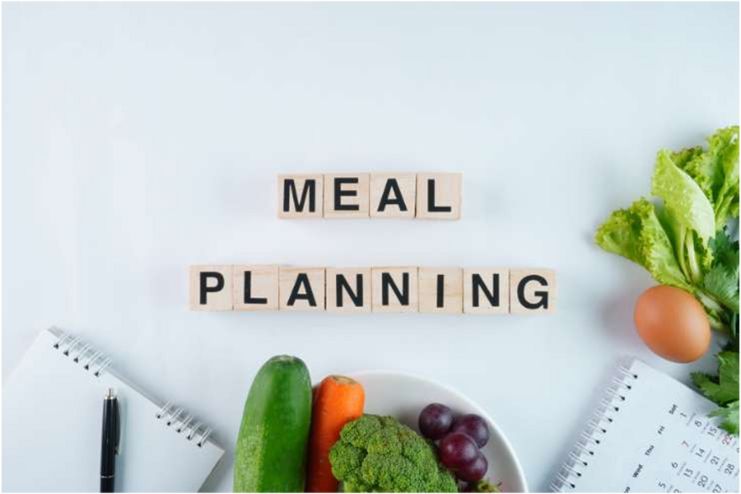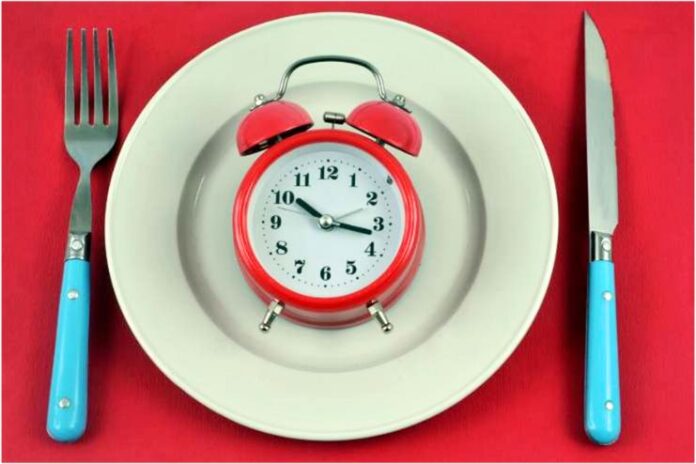Affiliate Disclaimer
Some links in this article are affiliate links. We may earn a small commission if you make a purchase through these links, at no extra cost to you. We only recommend products we find useful to our readersMeal timing is the deliberate planning of when to eat during the day to maximize performance, fitness, and health. Even though most individuals concentrate on what they eat, timing can be just as significant. Unusual eating habits and meal skipping are prevalent in our fast-paced society and ever-changing job schedules. Mealtimes are unpredictable for many persons with disordered eating practices.
Eating at the appropriate times can give your body the energy to get through rigorous exercise and everyday tasks without lagging.
The timing of meals becomes even more important for athletes or fitness fanatics. By eating according to your body’s needs, you can maximize strength increases, improve recovery, and promote muscle regeneration. For instance, a protein—and carbohydrate-rich meal after a workout helps repair muscle tissue and replace glycogen stores, resulting in a quicker recovery and enhanced performance. A balanced diet helps maintain a healthy metabolism, improve digestion, and lower the likelihood of overeating—even for non-athletes.
The Science Behind Meal Timing
Meal timing significantly affects hormone control, blood sugar levels, metabolism, and more than just providing the body with nutrition. Maintaining your body’s energy and happiness throughout the day depends on the time and consistency of your meals and snacks, improving your general health and well-being.
Eating meals at regular intervals helps you avoid blood sugar spikes and falls, which might otherwise cause cravings and energy collapses. This well-rounded strategy can also promote steady energy levels all day long.
Two important hormones that are essential to this process are insulin and cortisol. When you eat, your body releases insulin to control blood sugar and aid cells in absorbing glucose for energy. Those who want to maintain a balanced blood sugar level benefit from meal scheduling because it keeps insulin from overworking and lowers the chance of developing insulin resistance over time.
Knowing the science behind meal scheduling can significantly improve your mental and physical well-being. Research shows that the circadian rhythm is connected to an individual’s ability to control their appetite effectively. The 24-hour cycle of circadian rhythms controls the timing of metabolism, behavior, and physiology. When functioning at their best, they communicate feeding and fasting physiological states and start the cycles of wakefulness and sleep.
Reasons to Follow a Structured Meal Timing Plan

Maximize energy: One of the main benefits of eating on time is consistent energy levels throughout the day. By feeding your body regularly, you can fight weariness and avoid energy dips. Structured eating includes reminders that help us ensure our bodies are fed on time. It is beneficial if you have weak or erratic hunger signals or find it challenging to remember to eat when focused on something fascinating.
Enhance muscle recovery: Eating at the correct times for weight loss and fitness also helps muscles recover. Your muscles require nutrition, especially protein, to grow and heal after exercise. Protein synthesis is essential for muscle growth and recovery; eating after an exercise promotes this process. This methodical technique optimizes the results of your exercise efforts.
Better digestion: The time of meals also affects gut health. Eating late during the night can interfere with digestion and sleep, frequently resulting in discomfort or acid reflux. Following a planned meal schedule that avoids eating right before bed helps your digestive system work more effectively, improving sleep quality and general health.
Weight management: The effect of meal timing on weight control is a frequently disregarded advantage. Regular meal scheduling balances the chemicals that regulate cues of hunger and fullness, such as ghrelin and leptin. Maintaining a healthy weight is easier when these hormones are balanced because you are less likely to overeat.
Pre-Workout Nutrition: Fueling for Peak Performance

Our bodies need nourishment during exercise to support the muscular tissues’ ability to produce energy. Not unexpectedly, these bioenergetic pathways are directly supported by our food!
Eating well before a workout can significantly improve your performance and reduce stiffness and weariness. Providing your body with the proper nutrition before working out is crucial to maximize your results. Power through even the most demanding sessions by selecting the best energy-boosting foods 30 to 60 minutes before you begin.
Including pre-workout carbs is one of the best strategies to achieve this. Carbohydrates contain glucose and are found in starches, grains, fruits, and dairy products. Commercially produced sports nutrition items, such as drinks, bars, gels, and powders, also contain carbohydrates. Carbohydrates increase muscular glycogen levels, preventing exhaustion and enabling longer, more intense workouts.
A slice of whole-grain toast with honey, oat porridge with berries on top, or a banana with a small portion of nut butter are all excellent choices for pre-workout food. These foods provide a rapid energy boost without making you feel bloated because they are high in readily digested carbs.
Another essential element of a pre-workout diet is hydration. Your body has to work harder when you’re dehydrated, which can lead to weariness and cramps. Before working out, try to consume 8 to 12 ounces of water. Add electrolytes to your drink if you’re sweating or working out for an extended time.
Post-Workout Nutrition: Optimizing Muscle Recovery

After working out, your body is ready to heal, and the correct nutrition can help you recover more quickly. Consuming protein and carbohydrates after a workout is critical since they help muscle regeneration and replenish energy reserve.
Carbohydrates aid in replenishing glycogen levels, frequently reduced during exercise, while protein supplies the amino acids required for muscle rehabilitation. When taken together, these nutrients help the body repair more quickly, relieve sore muscles, and prepare you for your next workout.
Maximizing these advantages can be achieved by selecting smart post-workout snacks. Within 30 to 60 minutes following your workout, try to eat 15 to 30 grams of protein and 30 to 60 grams of carbohydrates for a successful recovery.
Some of the best post-exercise recovery foods are a smoothie consisting of protein powder, banana, almond milk, a Greek yogurt parfait with berries and granola, or a whole-grain wrap with lean turkey and vegetables. Each of these choices offers a well-balanced combination of carbohydrates and protein.
If you’re in the mood for something quick, a straightforward peanut butter and banana sandwich on whole-grain bread or chocolate milk might also be a good post-workout snack option. Convenient, simple to prepare, and nutrient-dense, these post-exercise recovery foods optimize muscle restoration.
Managing Energy with Daily Meal Timing
Making an energy-boosting daily meal schedule will help you stay energized and focused from dawn until dusk. By carefully organizing your meals, you can avoid the energy spikes and slumps that frequently accompany large, irregular meals. A planned routine of smaller, more frequent meals lowers cravings, maintains steady energy levels throughout the day, and helps maintain blood sugar levels.
Breakfast (7:00-9:00 AM): Begin your day with a nutritious meal of complex carbohydrates, protein, and healthy fats. Options that provide long-lasting energy without blood sugar increases include scrambled eggs with avocado on whole-grain bread or oatmeal with fruit and almond butter.
Mid-Morning Snack (10:30–11:00 AM): Eat a modest snack, such as Greek yogurt with honey or a handful of nuts with fruit, to keep your energy levels up. These energy-boosting snacks help avoid early afternoon weariness by providing a consistent food source between larger meals.
Lunch (12:00–1:00 PM): Vegetables, complex carbohydrates, and protein should all be balanced during lunch. A perfect option is a brown rice bowl with lean fish and steamed veggies or a quinoa salad with mixed greens, grilled chicken or tofu, and a mild dressing.
Afternoon Snack (3:00–4:00 PM): A light, high-protein snack, such as cottage cheese with cucumber or hummus and veggie sticks, will help you avoid the post-lunch slump. You can maintain stable blood sugar levels by eating snacks at this time and avoid becoming too hungry for dinner.
Dinner (6:30–8:00 PM): Choose a light meal with whole grains or starchy vegetables, lean protein, and healthy fats. Before bed, a grilled salmon fillet with roasted sweet potatoes and a side salad might help you regain your nutrition without feeling drowsy.
Impact of Late-Night Eating on Health

Although eating late at night may not appear harmful, it might have unexpected consequences for metabolism, sleep, and digestion. Since the body finds it difficult to process food effectively when it is winding down for rest, the effects of eating late are frequently associated with disturbed digestion. It can make having a good night’s sleep more difficult by causing pain, bloating, and even acid reflux.
Additionally, eating late disrupts your body’s normal metabolic functions.
Reaching for a snack before bed is generally not a good idea, especially if attempting to lose weight. We often retain excess calories from meals as fat when we consume them late at night, and we don’t use that fat as fuel. We need to make better use of the energy from a late-night meal since our metabolism slows down at night.
Eating late at night also increases the likelihood of choosing less-than-ideal foods, like cookies. This increases calorie consumption, resulting in weight gain and the development of metabolic syndrome, diabetes, and obesity.
Choose foods that are low in fat, high in nutrients, easy to digest, and won’t raise blood sugar levels. Great options include:
- A banana with peanut butter.
- Greek yogurt with berries.
- A small handful of almonds.
The protein and fiber in these nutritious evening snacks help you feel full without going overboard or interfering with your sleep.
Conclusion
Meal timing is a significant tool for boosting energy, improving performance, and promoting quicker recovery; it’s more than just a plan. By paying attention to your body’s natural rhythms and adjusting your meals accordingly, you may lay the groundwork for consistent energy, less exhaustion, and balanced hormones.
Whether you want to increase your energy levels, enhance your workout performance, or control your weight, timing your meals can have a big impact.
References
- https://www.acefitness.org/resources/pros/expert-articles/6390/meal-timing-what-and-when-to-eat-for-performance-and-recovery/
- https://www.healthline.com/nutrition/does-nutrient-timing-matter
- https://medispachoto.com/why-timing-your-meal-matters
- https://pmc.ncbi.nlm.nih.gov/articles/PMC6520689/
- https://www.hyperionhealth.ca/meal-timing-recommendations-for-weight-loss-appetite-control-and-athletic-performance
- https://www.precisionnutrition.com/all-about-nutrient-timing
- https://yaletownnutrition.com/the-importance-of-meal-timing/
- https://pubmed.ncbi.nlm.nih.gov/32998085/
- https://www.nm.org/healthbeat/healthy-tips/nutrition/best-times-to-eat
- https://www.oxygenmag.com/nutrition-for-women/nutrition-tips-for-women/the-science-behind-meal-time/
- https://pmc.ncbi.nlm.nih.gov/articles/PMC6866051/
- https://straightforwardnutrition.com/structured-eating/
- https://thejacksonclinics.com/pre-workout-nutrition-for-optimal-performance-2/
- https://www.healthline.com/nutrition/eat-before-workout
- https://www.ballogy.com/how-to-fuel-your-body-for-peak-performance/
- https://www.healthline.com/nutrition/eat-after-workout
- https://www.rupahealth.com/post/maximizing-muscle-recovery-the-role-of-post-workout-nutrition
- https://bellinghamevo.com/what-is-the-best-thing-to-eat-after-a-workout-tips-for-maximized-results/
- https://www.osmifw.com/eating-for-post-workout-recovery/
- https://www.hopkinsmedicine.org/health/wellness-and-prevention/does-the-time-of-day-you-eat-matter
- https://www.miamiherald.com/living/wellness/article291487455.html
- https://hms.harvard.edu/news/late-night-eating-impact
- https://pmc.ncbi.nlm.nih.gov/articles/PMC10899630/
- https://healthmatters.nyp.org/is-eating-late-at-night-bad-for-your-health-heres-what-to-know/
- https://pmc.ncbi.nlm.nih.gov/articles/PMC4425165/
- https://www.nytimes.com/2023/12/19/well/eat/eating-late-night-health.html
- https://www.healthline.com/nutrition/what-time-should-you-stop-eating
In this Article















